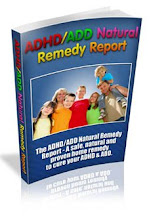I would often get annoyed and frustrated with my ADHD son because I would tell him to finish his snack and get started on his homework only to find him playing outside or watching TV.
When I asked him why, his usual response was that he forgot. He was also very forgetful in general, as most children with ADD are.
ADD kids have trouble with both long-term and short-term memory. The problem these children experience with Short-term memory is that they cannot keep something in the forefront of their memory to use immediately. This leads to all sorts of problems both in the home and at school.
This short-term memory loss makes him forget simple instructions that either you or his teacher have given him, making it very difficult for your child to follow simple instructions, simply because he cannot remember what those instructions were, or he may have forgotten that you gave them in the first place.
Short term memory loss also leads to other school problems for children with Attention Deficit Disorder. Short term memory is also called working memory and your child needs it in order to remember the question that the teacher has asked, as well as to remember new information learned in class and apply it to her work.
Whilst reading, short-term memory helps us to understand what we are reading. When writing, short-term memory helps us to get our thoughts down on paper and keeping the main idea in mind simultaneously.
In math, short-term memory helps us to keep track of the numbers and calculations throughout the steps of a more complex problem, such as long-division.
A strong short –term memory is the first step to a strong long-term memory.
Your ADD child may be having trouble with his long-term memory if he forgets information that he once knew well. He may have trouble retrieving the information that is filed away in his long-term memory.
In order to understand and remember something, we need to be able to build on previous material learned. Good examples of this type of material include vocabulary words, math facts, history facts and so on.
Without this ability to build on previous facts, learning can be painful and slow, simply because we have to start from scratch and re-learn all that has been forgotten over and over again.
Attention Deficit Disorder (with or without hyperactivity) and other Learning Disabilities affect both the short-term and long-term memory causing your child to have endless problems at home, school and in other social settings.
For tips on how to help your ADD child boost his memoryand succeed at school ,click the link below.
Memory Boosting Tips For The ADD Child









